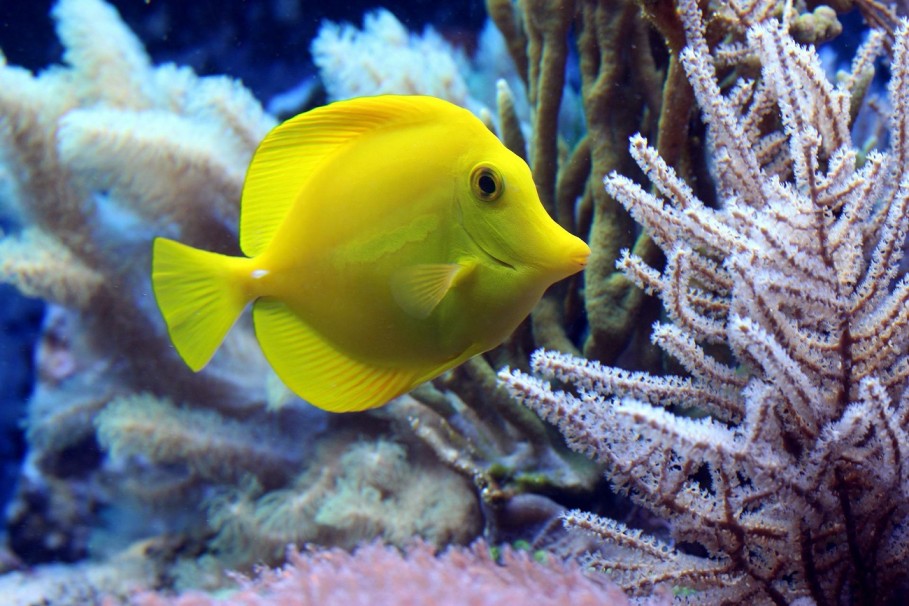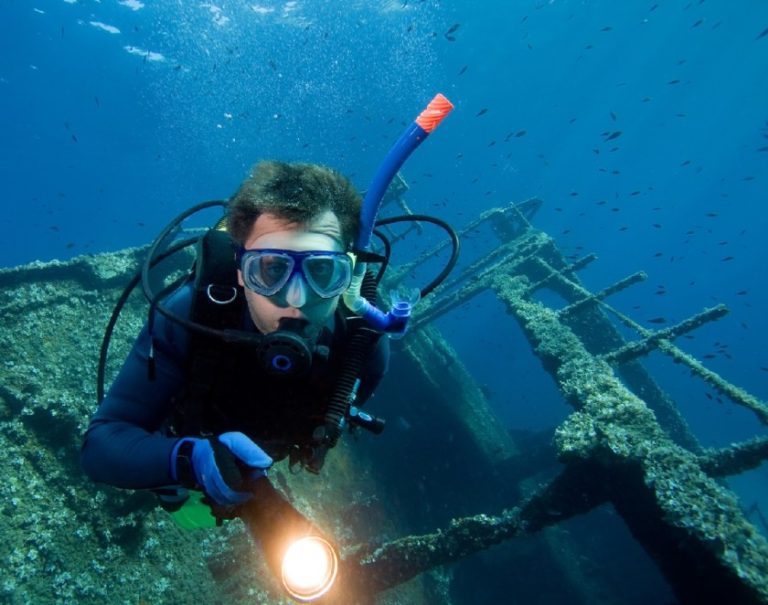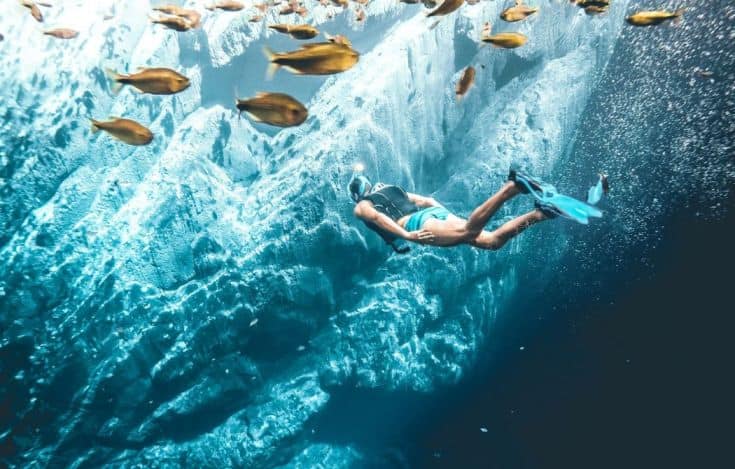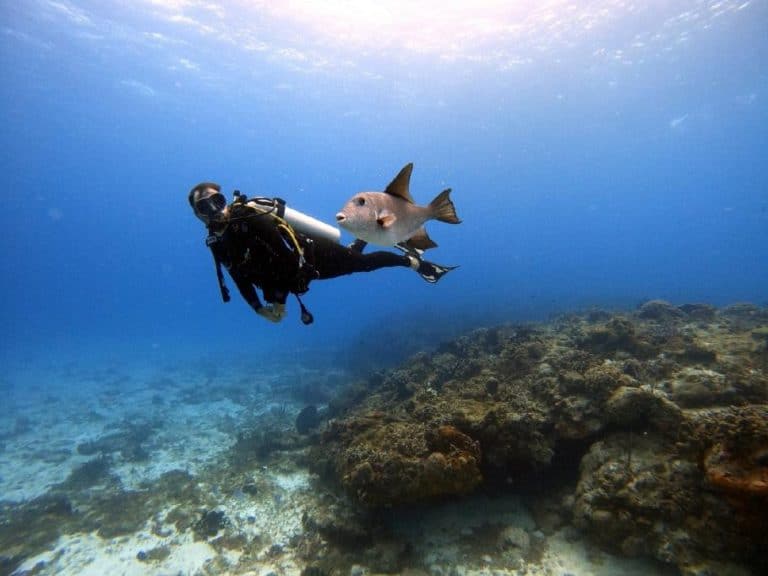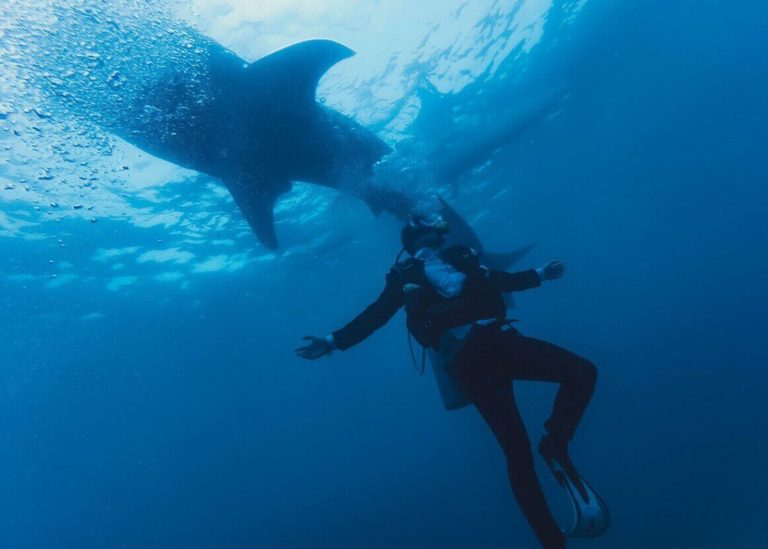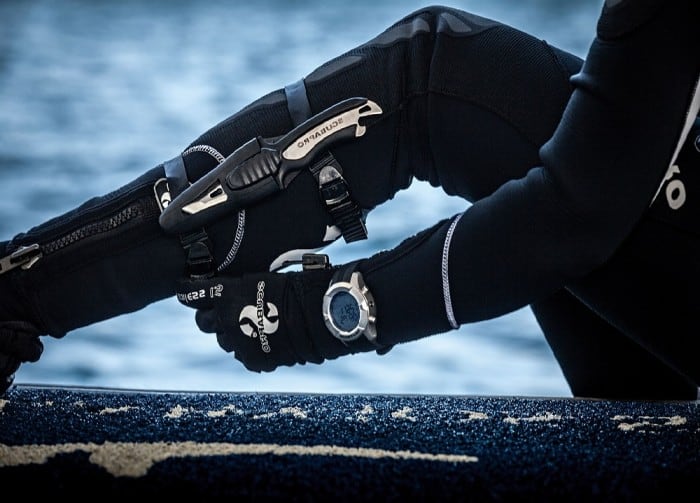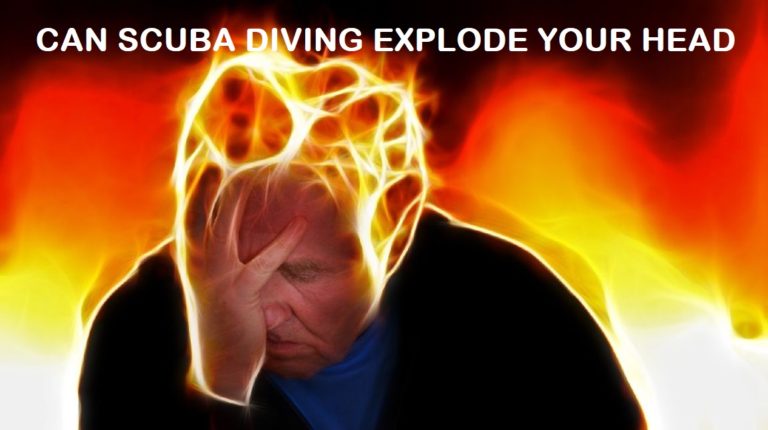Is Scuba Diving Bad for the Environment
Scuba diving continues to gain popularity all over the world. Divers are searching for their next dive spot, looking for the best diving destinations. Everyone wants to experience the beauty of the underwater world but are we diving sustainably? In this article I’ll answer the question is scuba diving bad for the environment.
Scuba diving can be bad for the environment if divers interfere with the environment by touching corrals, and marine life, disrupting sediments and wrecks. Using products with toxic ingredients such as those used in some sunscreens damages corals by bleaching and killing them.
But wait, this is only the summarized version of the answer. In the next few paragraphs, we’ll dive deeper into how scuba diving and scuba diving activities can be bad for the environment.
I’ll also go over some of the behaviors every scuba diver should adopt to ensure they are diving sustainably. We’ll look into the don’ts in scuba diving and a lot more.
Keep reading to learn more!
It’s #WorldReefDay! Celebrate by protecting beautiful and biologically complex coral reefs by:
🗑 properly disposing of trash
💡 conserving energy
🌞 using reef-friendly sunscreenMore: https://t.co/0zpkLvED4L pic.twitter.com/EL6fQPkc8R
— U.S. EPA Water (@EPAwater) June 1, 2022
Is Scuba Diving Eco Friendly?
Unfortunately, scuba diving in the 21st century is less eco-friendly than it was years before.
You are mistaken to think with all the advancements in scuba diving we should be doing better.
In simple terms, eco-friendly means not harming the environment. An eco-friendly lifestyle or diving means divers should leave the underwater environment better than they found it.
Studies conducted show that recreational diving has over the years caused negative impacts such as coral deaths. Some of this damage is done unknowingly because the diver lacks important information on how to dive without harming the environment.
These negative effects are forcing more countries to ban scuba diving in major coral diving spots to help protect and restore the ocean’s ecosystem. For instance, Thailand banned scuba diving in what used to be the most popular diving spots.
When many divers dive in the same spot over and over again, the environment is gradually damaged. Without noticing it divers are harming the environment with each dive.
Scuba diving isn’t all about diving at a popular spot and taking beautiful pictures and videos of marine life, it’s also about protecting that same environment. Everything underwater plays an important role in a thriving ecosystem.
Many people often think corals are beautifully shaped rocks that occur underwater since they feel hard as rocks. Corals are in fact living organisms and part of marine life that play a huge role in sustaining the ecosystem.
Coral reefs provide food, and shelter and also protect the beaches from strong waves. By breaking the strong currents, those living along the coastline can continue enjoying life.
Understanding the marine environment will help divers and everyone else protect the environment and dive responsibly.
READ MORE: 13 Reasons Why Scuba Diving Is Good for You
Why Scuba Diving Is Bad For The Environment?
Scuba diving when done right is actually beneficial to the environment.
However, most scuba divers participating in recreational diving don’t care for the environment. Most simply want to have a good time diving and create memories.
Scuba diving is bad for the environment as many corals, biofilms, marine life, and environments are destroyed in the process.
Diving is particularly popular in the summer, the perfect weather makes it ideal for water sports. As you enjoy the sun, you also want to protect your skin from harmful UV rays using sunscreen.
Some sunscreens contain toxic chemicals that bleach corals and eventually kill them.
In Hawaii, the use of sunscreens with these bleaching chemicals (oxybenzone and octinoxate) is banned. Read more on what to avoid in your sunscreen
After conducting research on what was causing the decline in corals, studies showed that these two chemicals played a major role in the death of corals.
Unfortunately, most of this damage is caused by unsuspecting tourists. Hawaii is among the top holiday destinations, perfect for surfing, snorkeling, and scuba diving. More tourists, unfortunately, translate to more damage to the oceans.
With this new law to protect the corals, we hope to see corals and oceans restored. If you a planning a trip to Hawaii, please read the ingredient list on your sunscreen and other personal care products.
Scuba diving is bad for the environment when divers step onto marine life, and touch or break a piece of coral to bring as a souvenir.
All these activities injure marine life allowing infections to thrive. Other harmful activities include anchoring the boats into corals and disrupting wrecks and sediments.
It’s important to remember that each time you go diving, you are a foreigner to the environment. Wrecks underwater become home to some marine life and by rolling them over you are disrupting this ecosystem.
Avoid touching anything no matter how beautiful it looks.
Did you know that #coral #reefs produce their own kind of #sunscreen called fluorescent pigment that acts as a #natural sunblock and protects it from harmful effects of #sunlight and #UV rays?
.
.
.
.
.#beautiful #diving #scuba #nature #ocean #biology #marinebiology pic.twitter.com/0IR0tL0coh— Ola Means ALIVE (@OlaMeansAlive) October 8, 2020
How Does Scuba Diving Affect Coral Reefs
Corals most susceptible to touching have very thin membranes that easily get destroyed each time you touch them. By touching the coral you are removing the protective barrier and allowing pathogens to attack the coral.
Once an infection kicks in, it’s very hard to restore the coral. It only spreads killing the entire coral and other organisms depending on it are affected too.
Other than touching corals, scuba divers should only use reef-safe sunscreen and reef-safe anti-fogging solutions.
As mentioned earlier, toxic chemicals in some sunscreens play a major role in bleaching and killing corals. Only a small amount is needed to bleach a coral the size of a story building. It’s that bad!
Reef safe sunscreens to buy include:
- Reef Safe Sunscreen SPF 50 All Natural
- MANDA Organic Sun Paste – Natural, Reef & Ocean Safe – SPF 50
- Coral Safe SPF 50 Face Stick Sunscreen
- Stream2Sea Biodegradable & Reef Safe Sunscreen with SPF 30
- Thinksport SPF 50+ Mineral Sunscreen
- All Good Sport Face & Body Sunscreen Lotion – UVA/UVB Broad Spectrum SPF 30+
Dive boats damage corals by anchoring into them. This damage is irreversible and so immense to corals. Infections and attacks from the surrounding will destroy the coral in no time.
This damage to corals has led to the loss of some coral species. Diversity is equally important underwater since each species plays its unique role in sustaining the environment.
In addition, damaging corals by stepping on or touching them affects the growth rate of the coral and other organisms within the coral.
This continued damage lowers the endurance levels in corals. Corals subjected to constant damage can’t withstand strong currents, climate change, or even recover once an infection sets in.
Despite inhabiting less than .1% of the ocean, coral reefs support 25% of all marine life. Happy #WorldReefAwarenessDay! 🐠 #marinelife #marinebiology #coralreefs pic.twitter.com/qjgs5dKu4O
— Waterway Advocates (@FLWaterways) June 2, 2022
How Can Divers Protect Coral Reefs
Divers can protect coral reefs by adopting eco-friendly behaviors such as using reef-safe products, practicing buoyancy underwater, avoiding touching anything while diving, and using their diving gear and equipment well.
Using reef-safe sunscreen and defogging solutions will prevent bleaching and killing of corals.
The main reason divers end up touching or stepping on corals is poor balancing skills. Good buoyancy will prevent a diver from struggling to keep floating underwater. It’s important to learn how to use BCDs.
In addition, kicking vigorously while divers struggle with buoyancy leads to coral damage. Uncoordinated kicking leads to fin blades hitting corals damaging them. This also disrupts sediments disrupting marine life settled within.
Avoid touching corals or any other marine life. Diving gloves are great accessories but also encourage divers to touch corals.
Since corals are naturally sharp and spiky, you wouldn’t touch them with your bare hands. If you must wear diving gloves this should be only to help keep your hands warm or protect them from sharp objects. In no way should this be a reason or motivation to touch anything.
Another overlooked factor is diving gear and equipment. As mentioned above ensure your fin blades don’t hit or touch corals while diving. A lot of dangling gear such as the air gauge can easily hit coral as you move around in the water.
Always secure your gear in a good position for you to read or check but also protect corals.
Other ways to protect corals include picking up trash spotted while diving. There is a lot of waste on the seabeds including plastic, electronic, and rubber waste.
Carry a small bag to put the waste in, you don’t have to pick everything but even the smallest acts contribute to saving and protecting the environment.
Most importantly, divers should learn more about marine life and the underwater environment. With a better understanding of why it’s important to protect corals, we can all do better.
READ MORE: Why Scuba Diving Is Fun
It’s #WorldReefDay
Did you know that roughly 25% of the world’s coral reefs are already considered damaged beyond repair? 💔 pic.twitter.com/0saNhcSXHR
— 4ocean (@4ocean) June 1, 2022
How Does Scuba Diving Help the Ocean
Yes despite the horrifyingly negative effects of scuba diving discussed above, there are many scuba divers involved in protecting the ocean.
Scuba divers are guardians of the oceans. This can be through direct protection of the ocean or by training other divers on the importance of protecting the oceans.
Diving instructors train newbies on how to dive responsibly, how to use their gear and equipment as well as how to interact with marine life.
Scuba diving helps protect the oceans by identifying a part of the ecosystem that is being damaged and helping restore it. This can be done by prohibiting diving activities in affected areas and planting corals to help restore them.
Experienced scuba divers and marine biologists are in a better position to spot the damage before anyone else can.
By picking up litter while diving, scuba divers help protect the oceans.
The Don’ts in Scuba Diving
Eco-friendly scuba diving is still possible and easy to accomplish. Below are some of the things you shouldn’t do while scuba diving;
- Don’t touch anything while diving
- Avoid using sunscreen with harmful ingredients
- Don’t pet or fed any fish while diving
- Avoid stepping or touching corals
- Don’t break corrals to bring as souvenirs, leave everything in water just pick up the trash
- Don’t litter the oceans
- Carry memories only, leave the shells, and corals as you found them
Great graphic on understanding the impacts your #sunscreen is having on the oceans. If it is killing the ocean..what is it doing to you? #beacoralhero#conservationdesigners #oceans #sunblock #scuba #beach #environment #coral #reefs #diving pic.twitter.com/LHS0tnrlMu
— Jane Rovins, PhD, MPH (@DRRSolutions) June 20, 2019
Parting Words
Scuba diving has both negative and positive impacts on the environment. Unfortunately, scuba diving in this century has recorded more negatives than positives.
This is not to stop anyone from scuba diving or training for the activity. Just remember to educate yourself on the importance of every marine life and always dive responsibly.
As a scuba diver, it’s important to educate others on the importance of diving sustainably and protecting marine life.
Together we can restore the oceans and keep enjoying all water activities. If we don’t protect the oceans then the underwater beauty will be lost and there will be nothing left to enjoy. After all the point of scuba diving is to experience a beautiful marine environment while enjoying all the other benefits of scuba diving.
To answer the question is scuba diving bad for the environment, the answer is yes and no. If done responsibly scuba diving is good for the environment but if we continue diving irresponsibly, scuba diving will lead to the death of many coral reefs and destroy many marine ecosystems all over the world.
We are doing a lot of damage on land already, let’s protect the underwater world!

